What Is Hanukkah? – A Season of Miracles and Light
The Fellowship | October 1, 2023
Hanukkah is one of the most joyous festivals of the Jewish calendar. Learn more about this celebration of God’s wondrous miracles and the many important lessons Hanukkah has for both Christians and Jews.
When Is Hanukkah in 2023?
In 2023, Hanukkah, also spelled as Chanukah, will start at sundown on December 7th and conclude at sundown on December 15th. This eight-day festival begins on the Hebrew calendar date of 25 Kislev and lasts for eight days.
A Brief History: Why Is Hanukkah Celebrated?
At Hanukkah, Jews commemorate the victory of the Maccabees over the Greek/Syrian forces of King Antiochus in the year 165 B.C.E. That regime sought to impose paganism on the Jewish people. They put a pagan idol, Zeus, in the Temple, and forced Jews to eat non-kosher food. This was the first time that enemies of the Jewish people were trying to destroy them spiritually, rather than physically.
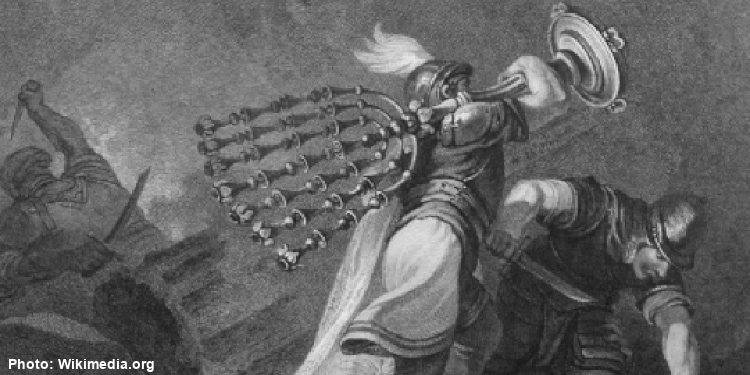
Source: Wikimedia
A group called the Maccabees, led by a man named Mattathias and his brothers, revolted against these Hellenistic authorities. And by the 25th day of the Jewish month of Kislev— a date that usually falls during December on the Gregorian calendar—this undermanned, untrained rag-tag group regained control over the Temple, cleansed it from defilement, and rededicated it. That’s what Hanukkah means: “rededication.”
In the Temple, there was an eternal flame that had to stay lit all the time. But when the Jews came into the Temple to light the flame, there was only enough oil to keep it burning for one day. After they lit it, however, a miracle occurred—the lamp remained lit for eight days until the new oil arrived. This is how Hanukkah became known as the “Festival of Lights.”
Thousands of years later, this major victory in Jewish history is celebrated annually. This holiday not only observes the rededication of the Temple, but also a rededication to God. It is a symbol of light and hope for a new beginning and rekindling their connection with God. Each night of Hanukkah, Jews light candles in memory of this unforgettable triumph and God’s miracle.
Victory of Light Over Darkness
The story of Hanukkah is the victory of light over darkness. The story of the Maccabees is the story of all people of faith. It is our story.
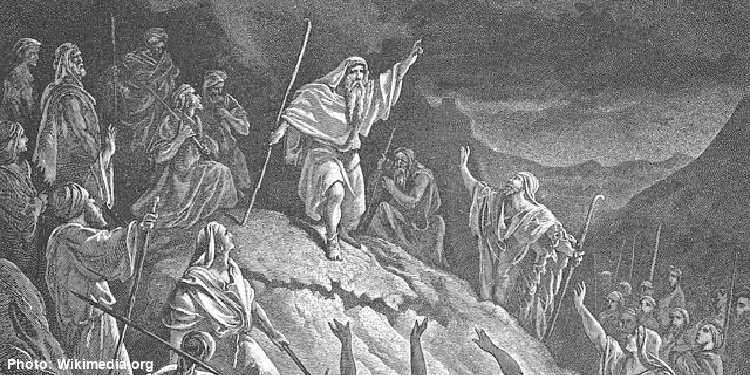
Source: Wikimedia
The battle between the Jews and the Greeks that we recall on Hanukkah was more than a physical battle; it was a battle of ideals and values. The Greeks proclaimed that all that matters is what we can see, touch, and understand. The Jews believed that what matters most cannot be seen, touched, or understood. The Greeks believed that beauty was holy. The Jews maintained that holiness is beautiful. The Greeks worshiped the physical body; the Jews cherished the soul.
The ideals of the Greeks encouraged immorality, idolatry, and selfishness. The Jews stood for goodness, godliness, and kindness. This was a battle between good and evil, darkness and light. While the Greeks tried to extinguish the light of the Torah, a great miracle happened and the small group of remaining loyal Jews were able to conquer the darkness.
Discover the many spiritual lessons Christians can learn from this special eight-day holiday that Jesus celebrated (John 10:22) in this Bible study.
Did Jesus Celebrate Hanukkah?
Yes, Jesus and his disciples celebrated Hanukkah, also known as the Feast of Dedication. Jesus grew up as a Jew in a Jewish family from Nazareth, and as a result was closely tied to the Jewish holidays and traditions.
In the Christian Bible, John mentions Jesus celebrating Hanukkah:
“Then came the Festival of Dedication at Jerusalem. It was winter, and Jesus was in the temple courts walking in Solomon’s Colonnade.” (John 10:22-23)
Hanukkah is a holiday that celebrates the rededication to God and the Second Temple, and Jesus recognized the holiday’s importance. Hanukkah directly connects Christians to the Jewish faith and also connects them to Jesus’ practices and work. Learn more about the Meaning of Hanukkah for Christians in this article.
A Miraculous Victory
However, it’s critical to understand that this battle was not won in a natural way. That wouldn’t have been enough to completely eradicate the ideals of the Greeks. Instead, it was won in a supernatural way. As we recall in our Hanukkah prayers, God placed the many in the hands of the few, the mighty in the hands of the weak. God fought the battles for the Jews who fought with their faith.
The attitude of these fighters can be found in their chosen name. They became known as the Maccabees, ultimately led by Judah the Maccabee. Maccabee can mean “hammer,” and indeed the Maccabees hammered their enemies, fighting off the greatest, mightiest army of the time. Yet Maccabee is also a Hebrew acronym for the phrase: “Who among the gods is like you, LORD?” (Exodus 15:11). This was the battle call of those brave fighters, and it was also the source of their strength.
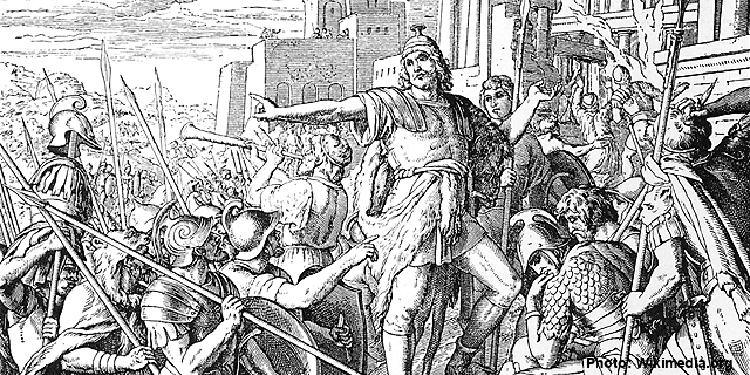
Photo credit: Public domain/Wikimedia Commons
On Hanukkah, we celebrate the miracle of the triumph of the Maccabees over the Greeks, which is also the victory of light over darkness. Appropriately, we light candles in the darkness to commemorate the event. Even just one candle can dispel so much darkness.
As we gaze at the candles each night during Hanukkah, we remember that the way to fight darkness is by adding more light. It’s not by might, but by God’s spirit and light that redemption will come into the world. When we affirm our faith in God, we continue the legacy of the Maccabees and merit the same Divine assistance afforded to them
Hanukkah is one of the most joyous festivals of the Jewish calendar. But it also has many important lessons for both Christians and Jews. Explore the lessons to be learned from the celebration of light.
Sharing Our Light
When lighting the menorah, the custom prescribed by the Jewish sages is to “publicize the miracle of Hanukkah.” We do this by lighting our menorahs in a place where it is most visible from the outside. That might be in front of our biggest window or even just outside our homes in specially made glass display cases. Moreover, many communities arrange public lighting ceremonies, often with menorahs built on a large scale. We do our utmost to make sure that the light of Hanukkah is seen from near and far.
However, we must ask why we follow this custom. We don’t find the idea of being public with our faith anywhere else in Judaism. There is no public display of eating matzah on Passover or blowing the shofar on Rosh Hashanah. Why are we so intent on making our Hanukkah ritual so public?
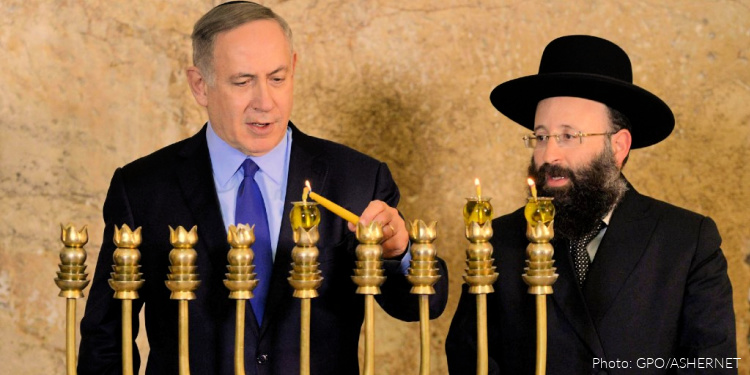
One answer is that the very nature of the Hanukkah story involved those who were proud of their Jewish faith and those who wished to hide it so they would be accepted into Greek society. It was those who stood up for their values by holding onto their faith that brought about the Hanukkah victory. When we light our menorahs in public, we boldly declare that we are proud to be Jewish.
On another level, the idea of lighting our menorahs in public is about shining light into the heart of darkness from our homes. This affirms that the light begins in the home. Home is the first place that we must illuminate with kindness, goodness, and the Word of God. However, it is not enough to keep the light to ourselves. We are meant to be a “light for the nations.” When we place our menorah lights for all to see, we affirm our obligation to share our light with the world. We remember that even one candle can dispel much darkness while all the darkness in the world cannot extinguish one flame.
A third reason for publicizing the miracle is because we are always meant to make known God’s great deeds. It is a statement of praise and gives glory to God when we share the miracles He has done. We shed light on gloomy situations and provide a ray of hope in the darkness
For some inspirational reflections on this Season of Lights, please download our Haunkkah Devotional Guide.
How Is Hanukkah Celebrated?
As mentioned, the main practice during the celebration of Hanukkah is the lighting of the menorah. In some families, one person represents the entire household and lights one menorah on everyone’s behalf. In other families, each family member lights his or her own menorah. Either way, it is best to light the menorah in the presence of other people as this helps us fulfill our duty to make public the miracle of Hanukkah.
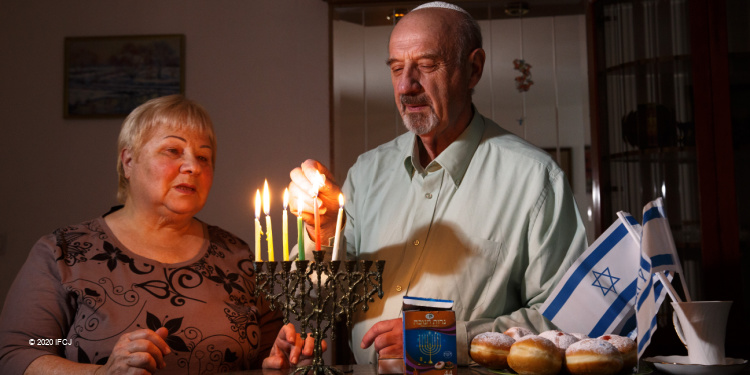
We begin the first night by lighting one candle, adding a candle each subsequent night for the eight days of Hanukkah. It’s important that the candles are evenly spaced apart and about the same height so one can easily tell how many candles are lit instead of confusing the menorah for one big torch.
Each night, in addition to the Hanukkah candles, there is an extra candle called the shamash, which means “helper.” Since the Hanukkah candles are considered holy, they aren’t allowed to be used for any other purpose, like a reading light or lighting another candle. The shamash is used to light the candles instead. The Hanukkah candles are designated exclusively for spiritual introspection and inspiration.
Hanukkah Symbols and Traditions
Some of the most common symbols of Hannukah are the dreidel, the Star of David, candles, latkes, and the yummy sufganiyot donuts. These became important symbols because of the many traditions of this special holiday.
One of the traditions is eating fried food like latkes and sufganiyot throughout the holiday. These foods are fried in oil, which plays a symbolic part in celebrating the miracle of Hanukkah. This recognizes the miraculous oil that kept the menorah lit for eight days instead of the one day it was supposed to last.
Another popular Hanukkah tradition is hosting parties and playing games. Many families will host dinner parties with traditional foods and games. Some may even light the menorah candles together and have others bring their own menorahs. Some fun Hanukkah games include: Dreidel, Gelt Lineup, Gelt Checkers, and Menorah Ring Toss.
Find out how much you know about the history and traditions of Hanukkah with our quiz.
Hanukkah Blessings
Before lighting the menorah candles, there are a few blessings to be recited. On the first night of Hanukkah, there are three blessings that are recited. On the other seven nights, only two blessings are recited. That’s because on the first night of Hanukkah, there’s the Shehecheyanu prayer, a blessing of firsts.
The First Blessing
The first blessing is recited all eight nights of Hanukkah and blesses the candles of the menorah.
Transliteration:
Baruch atah, Adonai Eloheinu, Melech haolam, asher kid’shanu b’mitzvotav v’tsivanu l’hadlik ner shel Hanukkah.
Translation:
Praised are You, Lord our God, Ruler of the Universe, who made us holy through Your commandments and commanded us to kindle the Hanukkah lights.
The Second Blessing
Following the first blessing, the second blessing is recited and it praises God for his devotion to the Jewish people.
Transliteration:
Baruch atah, Adonai Eloheinu, Melech haolam, she-asah nisim la’avoteinu bayamim hahem bazman hazeh.
Translation:
Praised are You, Lord our God, Ruler of the Universe, who performed wonderous deeds for our ancestors at this season.
The Third Blessing: The Shehecheyanu Blessing
The Shehecheyanu is a blessing of firsts and is said for the first time something is done in the Jewish calendar year.
Transliteration:
Baruch atah, Adonai Eloheinu, Melech haolam, shehecheyanu, v’kiy’manu, v’higiyanu laz’man hazeh.
Translation:
Blessed are You, Adonai our God, Sovereign of all, who has kept us alive, sustained us, and brought us to this season.
The Laws of Hanukkah
Similar to other Jewish holidays, there are a few laws for the observance of Hanukkah. These laws tell us what is and what isn’t allowed during Hanukkah. Some Jewish people observe all of these laws, while others observe some and not others. Here is a list of a few laws of Hanukkah:
- Do not fast or eulogize
- It is allowed to work; however, it’s customary for women and men not to work for the first half hour after the menorah candles are lit
- Menorah candles must be lit on every night of Hanukkah
- Any type of oil is allowed to use for the menorah; olive oil is recommended
- Wax candles are also allowed for use with the menorah
- Read the Hanukkah blessings before lighting the menorah candles
- The menorah should not be moved once it is lit
Gifts Often Given at Hanukkah
Gifts are often given at Hanukkah, especially to children. One custom is to give out Hanukkah gelt, or money, to children. This is to teach them that there is reward for studying the Bible — even under difficult situations. Today, we often give chocolate coins or gifts instead, but the underlying lesson that Torah study is a most worthwhile pursuit remains the same.
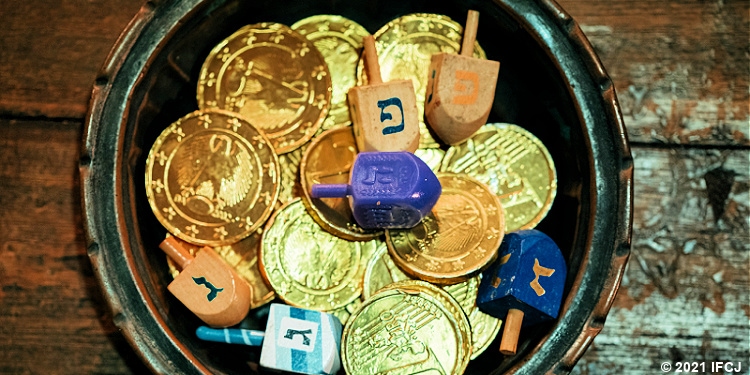
Another tradition is playing dreidel, a game using a small square spinning top. Tradition links this game to the time when the pagan king Antiochus Epiphanes was oppressing the Jewish people and trying to force them to assimilate into Greek culture. Antiochus made it illegal to study the Torah, upon punishment of death.
It is said that Jews who studied in defiance of the ban would conceal their activity by having children play games with a toy outside the home, and the children would warn those inside studying the Bible whenever an official or inspector was within sight.
Written on the dreidel are the four Hebrew letters of nun, gimmel, hay, and shin, which form the acronym for the phrase Nes Ga0dol Hayah Sham, “A great miracle happened there,” referring to the miracle of the oil burning in the Temple. In Israel, this liturgy is changed to, “A great miracle happened here.”
Recipes for Hanukkah
It is traditional during Hanukkah to eat foods fried in oil, such as potato latkes (potato pancakes) and special jelly-filled donuts called Sufganiyah. This recalls the miracle of the oil from the Hanukkah story.
Below are some easy-to-follow recipes for making your own latkes or Hanukkah cookies.
Recipes for Hanukkah
